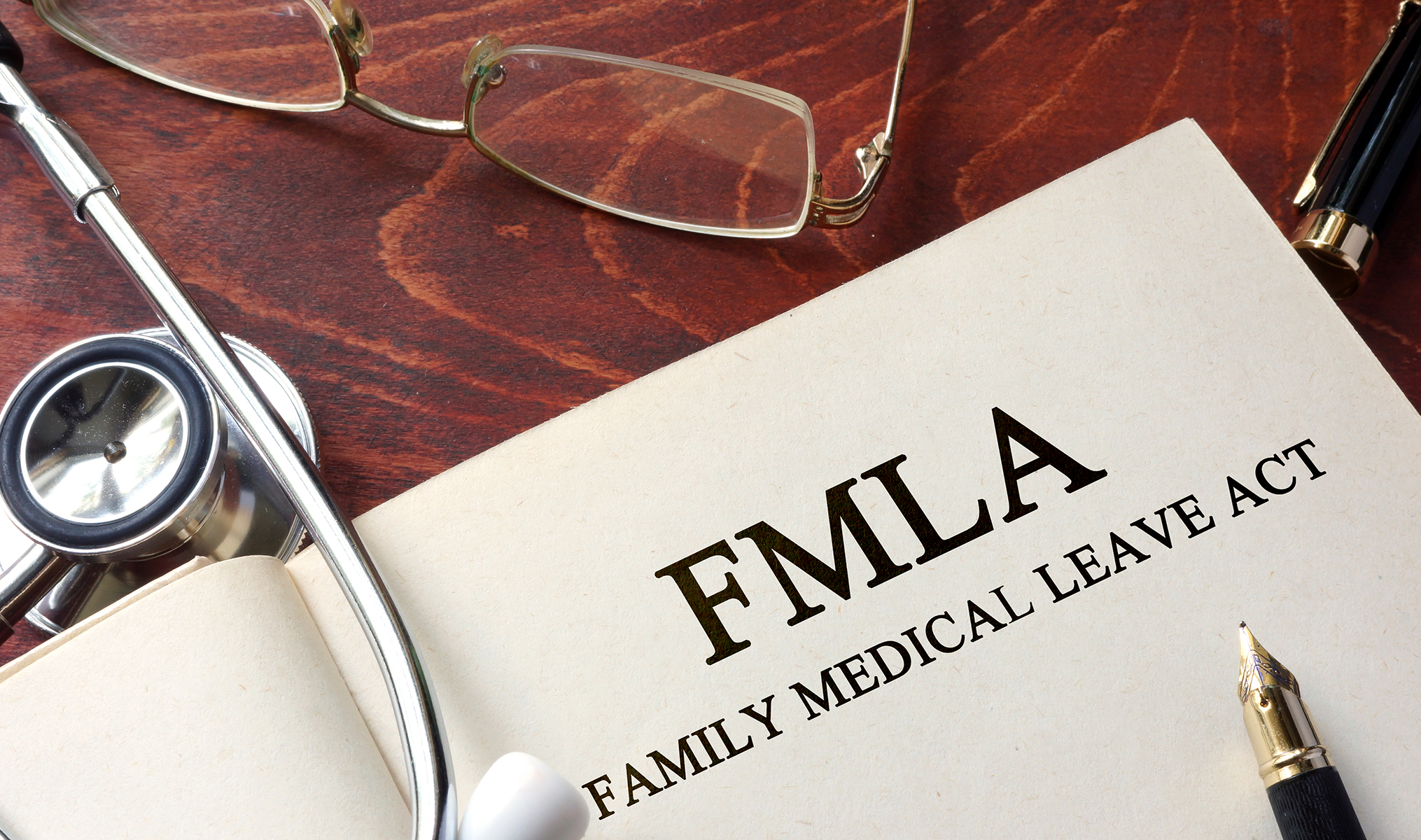

Q&A with Attorney Timothy G. Kenneally
A: The accrual formula (30 hours) is all hours worked, not just regular time.
A: If lunch is not considered time worked, it is not included in the calculation. Only time worked is accrued.
A: No. The first hour of sick time will be accrued when the employee passes the 30-hour mark for the year.
A: No. The accrual is not based on hours worked in a week – just total hours for the year.
A: The law does not speak to this issue directly. However, it appears that only the employees working in Massachusetts are covered by the law. The Attorney General will hopefully clarify this issue soon.
A: The law is not limited to minor children; it applies to all children.
A: The law applies to any employee who performs services for an employer for wages, compensation or remuneration. Therefore, if the co-op students are paid and treated as compensated employees, they are covered by the law.
A: Yes, temporary-staffing agencies are covered by the law.
A: The law exempts workers covered by a collective bargaining agreement IF the agreement provides equal or greater rights than required by the law. If the total package of time offered in a CBA (including vacation days) does not afford the employees up to 40 hours of time off to use for sick time, then the law will require the employer to increase the time off to meet the requirements of the law. In your example, if all that the employer provides for time off is one sick day and two personal days, with no vacation days, then the employer needs to increase the amount of time off for those employees. However, if those same employees also have one week of vacation, and the employees can use some of their vacation time for sick time consistent with the law, then the employer has exceeded the requirements of the law.
A: The only difference is the method by which time is accrued. With exempt employees, the actual time worked is not the measure. The exempt employee’s normal work schedule is the measure. Therefore, if the exempt employee is tracked as a 40-hours-per-week employee for payroll purposes, then the employee accrues 40 hours per week toward the sick-time calculation. If the exempt employee is tracked as a 32-hours-per-week employee for payroll purposes, then the employee accrues 32 hours per week toward the sick-time calculation. The presumption is 40 hours per week for an exempt employee unless the actual regular schedule is different.
A: At the time the leave is taken.
A: If an employee is terminated, the employee loses his or her unused accrued sick time. If the employee is later rehired, the employee does not recoup lost time from the prior employment but begins accruing new time.
A: Yes. The rate for sick time will be a blended rate.
A: You cannot have blanket prohibition such as the ones you describe. However, you can investigate the absence to determine if it was truly for a reason permitted by the law. If an employee is abusing the system to create long weekends, and you can prove it, then you will be in a position to discipline the person. You need a clear prohibition in your policy against this type of abuse of time off.
A: Yes – provided your existing system does not permit employees to take time off in smaller increments. If the existing system allows for shorter increments for time off, then the short increments must also be applied to sick leave.
A: The short answer is, “No.” However, separating the time from vacation may be of some benefit to the employee. At termination, employers must compensate employees for accrued unused vacation days but are not required to pay for accrued unused sick days.
A: You need to provide available time off that amounts to at least 40 hours per year for any employee on your staff who works at least 1,200 hours per year. If you afford that amount of time off, regardless of what you call the time off, and if the employee can use the time off for sick leave consistent with the statute, you are in compliance. However, you need to explain to the staff by means of your written policy that they can use the time in their bank (including their vacation time) as sick time under the same terms and conditions as required by the law. You need to tell your staff that the time off you are giving them is intended to comply with the sick-leave law.
A: The short answer is “Yes,” provided the employees are permitted to use up to 40 hours of their paid time off for sick time in accordance with the law. You will need to clearly spell out your position on this issue to the staff so they understand that you view up to 40 hours of their eight (8) paid days off as complying with the new law. You may, however, encounter some disgruntled employees. You are in essence telling the staff that their employer expects them to use some of their vacation time as sick time if and as needed. While in practice this may already be the case, some employees may feel as though they no longer have 5 vacation days.
A: The “makeup provision” of the law is presented in terms of “by mutual consent” between the employer and the employee. Therefore, if the employer does not want to permit the employee to make up the time missed, perhaps because it will result in overtime, the law affords the employer that right. If the employer allows the employee to make up the time, then the employer will not have to pay out the sick time when taken. It seems a good idea to fully document the agreement with the employee at the earliest possible time.
A: The law says “24 consecutively scheduled hours.” Therefore, the law is not speaking about eight-hour days or shifts, per se. The certification portion of the rule will apply if an employee misses two consecutive 12-hour shifts, three consecutive eight-hour shifts, four straight six-hour shifts and so on.
A: If the bucket of time provided January 1 gives the employee the same or more time off than the 40 hours required by the law, the employer can treat any accrued unused time from the prior year as lost time. The law says that an employer can cap the sick-time bank at 40 hours. Therefore, the employer does not need to allow a carryover of time if the bank would then exceed 40 hours. The employer can elect to permit a carryover and add the accrued time to the new time in the bucket, but the employer is not required to permit the carryover when the time in the bank meets or exceeds 40 hours.
A: If the time in the bucket is not designated, then the law will deem it vacation and require the employer to pay it all to the employee at termination. Therefore, if an employer does not want to pay out all the accrued unused time off as vacation upon termination, the employer must clearly explain to the employees what portion of the bucket is vacation time and what portion is other.
A: This is likely a business decision for the employer and will vary case by case. If the employer does not want to deal with the accrual process, the employer simply needs to grant the employees a bucket of time off that meets or exceeds the requirements of the law.
A: Circumstances will vary. The maximum one can accrue in a year is 40 hours. If, for example, an employee has a bad illness and misses a full week of work, the employee may use all of his or her sick time and not be able to accrue more until the following year.
By ROSEMARIE S. LOPES
Senior Partner, Sylvia Group
CONTACT ROSE
About Rosemarie Lopes and Sylvia Group
A Sylvia Group senior partner, Rosemarie Lopes heads Sylvia Group’s Employee Benefits division and serves as the agency’s principal life insurance expert, utilizing more than 15 years of industry experience working with businesses and individuals to design programs that fit their strategic plans and goals. Her designs for health, dental, disability, life, long-term care and travel insurance coverage help clients protect their investments and provide security for the people they care about most. Rose earned her Registered Health Underwriter (RHU®), Registered Employee Benefits Consultant (REBC®) and Chartered Life Underwriter (CLU®) designations through the American College of Financial Services.
Sylvia Group uses SPS – the Sylvia Protection System – to empower businesses and individuals with performance-based insurance, benefits and financial planning programs. SPS makes our clients active participants in managing risk and containing premiums, resulting in coverage that is both customized and cost-effective. In addition to making a difference for our clients, we make a difference for our community as a whole by actively supporting and serving many of southern New England’s most reputable and effective nonprofit organizations and institutions. Sylvia Group became an Alera Group company at the outset of 2020, enabling us to combine the local, personal service for which we’re known with the scope and resources of a national firm.







